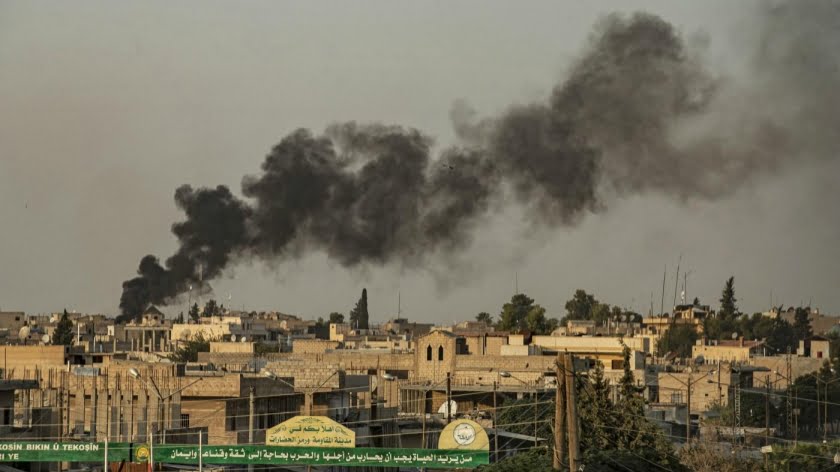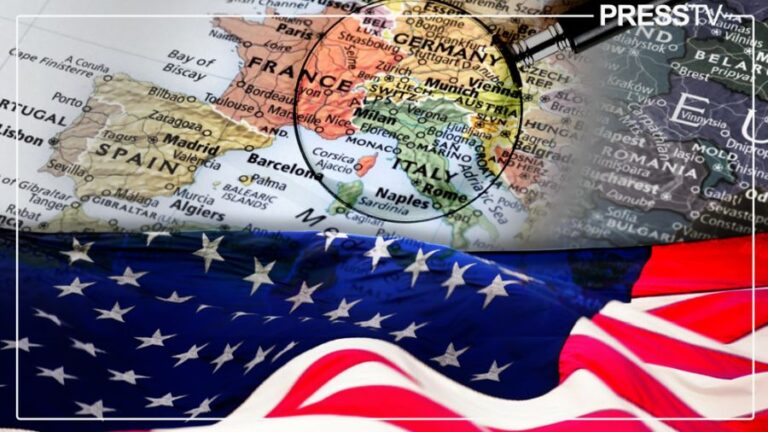US Forces will Not Likely Withdraw from Syria This Year
Notwithstanding President Donald Trump’s announcement of the deal with his Turkish counterpart Recep Tayyip Erdogan to tactically withdraw US forces from specific locations in occupied north-east Syria- and in consequence to leave the Syrian Kurds to their fate- the departure of US forces from Syria is highly implausible. These US forces have established several military bases and airports, offering logistic and operational support to US forces in Iraq and to the Israeli Air Force. Abandoning the occupation of north-east Syria would result in giving up a strategic location in the Middle East, a move that the US administration is not expected to take this year. Moreover, the international support the Kurds (in Syria and Iraq) enjoy may well protect them from being attacked on all fronts by jihadists and pro-Turkish militants. However, the interest of the US is to look after its NATO ally rather than prioritise Syrian Kurdish militants who fought and were paid money and military hardware in exchange for their services – as Trump has explained. This means a limited Turkish operation is expected (and has indeed started) notwithstanding all the complications and conflicts of interest Turkey will be facing with its Russian and Iranian allies.
The US has always been very clear that its own interests prevail above those of any other country or group. It has business partners rather than strategic allies. In this context it would be normal for the US administration to drop the Syrian Kurdish militants. After all, Trump seems to believe they have served their purpose: they are mercenaries who have been paid for a certain job – the task of eliminating the “Islamic State” (ISIS) – which is now done.
But the Syrian Kurds are threatening to withdraw from the protection of over 50 jails where they have locked away around 11,000 ISIS militants. They also control al-Hol camp, with over 80,000 ISIS family members. This move will never happen: the Kurds will be exterminated by the same ISIS if they set them free. Already the Al-Basel military base in Raqqah was targeted by two suicide attacks on Tuesday night, followed by around 50 other Jihadists attempting to capture the base.
ISIS has lost control of any cities but is still active as insurgency force, adopting hit-and-run tactics in both Syria and Iraq. The Kurds won’t shoot themselves in the foot by releasing any ISIS members: at the moment they serve the purpose of exerting pressure on the world, and in particular on Europe, to stop the US withdrawal decision.
What is actually expected is a Turkish attack – with its Syrian proxies – on two fronts, Tel Abiyad and Ras al-A’yen — following a US tactical and partial withdrawal of the area concerned. The targeted area that Turkey will try to occupy is 100 km long and around 300-400 sq km in area.
What is surprising is the fact that, in the circumstances, the Kurdish leadership has not lowered their expectations realistically in negotiations with the government of Damascus concerning their request to form a federation in the country. The Kurds have asked Damascus, in the presence of Russian and Iranian negotiators, to allow them to retain control over the very rich oil and gas fields they occupy in a bit less than a quarter of Syrian territory. Furthermore, the Kurds have asked that they be given full control of the enclave on the borders with Turkey without any Syrian Army presence or activity! Damascus doesn’t want to act as border control guards and would like to regain control of all Syrian territory. The Syrian government wants to end the accommodations the Kurds are offering to the US and Israel, similar to what happened with the Kurds of Iraq.
Moscow and Tehran refuse to exchange the US occupation for a Turkish one. Even if Russia, Iran and Syria believe that the Turkish presence is less dangerous than the US one, Damascus and its allies reject occupation of any part of Syria and are determined to see the central government regain its control over the entire territory and its energy resources.
Notwithstanding the fact that President Erdogan may close his eyes to the destiny of Idlib and could allow the Syrian government to regain control of the city and its rural territory (which would mean eliminating the jihadists including al-Qaeda), the Syrian President insists on regaining control of the entire territory.
Turkish negotiators met with Russian and Iranian officers to discuss Idlib in exchange for al-Hasaka and Qamishli. Assad rejected any similar deal with Turkey, and “will deal with the occupation of north-east Syria when the Middle East calms down”.
The Iranian nuclear deal and its consequences are on the table and have priority. The situation in Iraq is worrying, showing the capacity of the US and its allies to reshuffle the Middle Eastern cards to provoke demands for rightful reforms and job opportunities, and to exploit the “legitimate” demands of the population.
Turkey is aware that Russia and Iran can arm the Syrian Kurds if Ankara decides to occupy north-east Syria. Such a move could lead to Turkey sinking into the Syrian quagmire. It is too early to achieve an accommodation between the allies (Iran, Russia and Turkey) and Turkey is expected to move into a limited area in north-east Syria
The Kurds remain the biggest losers. What happened in Afrin is a prime example: the Kurds abandoned their city but refused to allow the Syrian government to control it. The battle of Afrin showed the inability of the Kurds to defend their territory on their own. The survival struggle pushed the Kurds to flee their territory and abandon it. If the occupation forces don’t reach a deal with Damascus – and very soon – there will be few places they can take shelter in. President Assad is ready to receive the Kurds with wide open arms- provided they end their reliance US protection.
Brett McGurk, the former Presidential (Obama and later Trump) US envoy to Iraq and Syria said “both Presidents developed and considered options to work with the Turkey-backed opposition, which is unfortunately riddled with extremists, many tied to al-Qaeda”. The stubbornness of the Syrian Kurds is leading them in total blindness to a no exit situation. They are stubbornly insisting on attempting to construct a State… on quicksand!
The Iraqi Kurds lost all their privileges when they tried to declare an Independent State. Trump believed the Syrian Kurds were “guns for hire” and they have now become unnecessary to the Americans. But the Kurds still refuse to face this reality.
There is a curse that afflicts many who have sought to reshape the Middle East. It affects Americans most conspicuously but now also the Kurds. It is the refusal to learn from history.
By Elijah J. Magnier
Source: Elijah J. Magnier







